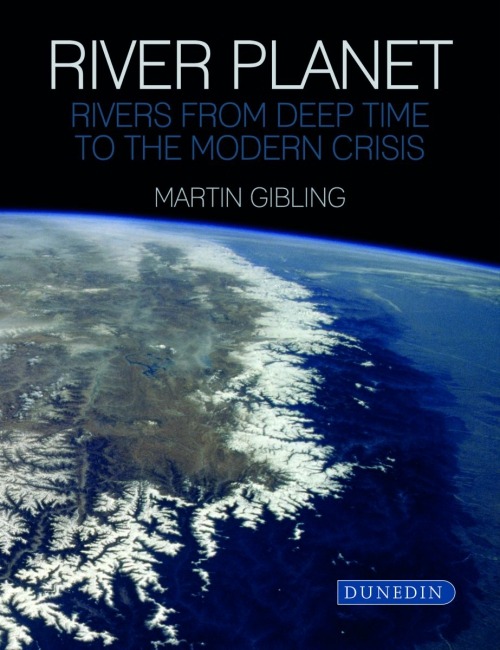River Planet: Rivers from Deep Time to the Modern Crisis
by Martin Gibling

I think the reason why this book is such a success is that River Planet not only introduces readers to the fascinating palaeo-history of the world’s rivers (both existing and disappeared), but also reveals the author’s personal account of his experience of rivers, together with a bit of history and interesting (and relevant) anecdotes, in the most entertaining of ways. In fact, the breadth of topics that it covers is staggering – from the first drop raindrop on the Earth (figuratively speaking) and rivers in Deep Time, to the environmental crisis that is all around us now. It even refers to the clear evidence of rivers on Mars.
The book starts with the first evidence of flowing water four billion years ago and continues with the enormous rivers on the first supercontinents, after which terrestrial vegetation engineered new river forms in the Devonian period. The breakup of the supercontinent Pangaea, 200 million years ago, then led to our modern rivers, as continents moved and collided through the process of plate tectonics, such that mountain ranges formed and plains tilted to form the world as we see it now.
That is, as an understanding of rivers requires an understanding of geology, the author explains the relevant aspects, while at the same time covering remarkable examples, including the rapid carving of the Grand Canyon, reversing rivers in South America (including the mighty Amazon), and the lost rivers of the English Channel, with evidence for the latter is still present under the sea in the form of river channels and even plunge pools. In fact, the latter example of several in the book, in which there have been gigantic meltwater floods from the Ice Age and river systems drowned by rising sea level as the ice melted.
The author also covers the effect on rivers by humans. He shows how early human civilizations tried to control rivers through agriculture and irrigation, moving eventually, in the nineteenth century, to hydraulic mining, the rise of huge dams, and the burial of rivers below cities like London. Inevitably, he also covers the unfortunate fact that rivers are now endangered worldwide, but the book also celebrates people, who try to preserve rivers around the world, maybe bringing some hope to river ecosystems and communities.
The book is aimed at a general audience ranging from advanced high-school students to mature readers. However, it is also probably of considerable interest to professional scientists and students of geology, geography and environmental science. I really do recommend it.
Martin Gibling was born in the UK and is Emeritus Professor at the Department of Earth and Environmental Sciences at Dalhousie University in Halifax, Nova Scotia, Canada.
River Planet: Rivers from Deep Time to the Modern Crisis, by Martin Gibling, Dunedin Academic Press, Edinburgh (2021), 222 pages (hardback), ISBN: 978-1-7804609-9-4.